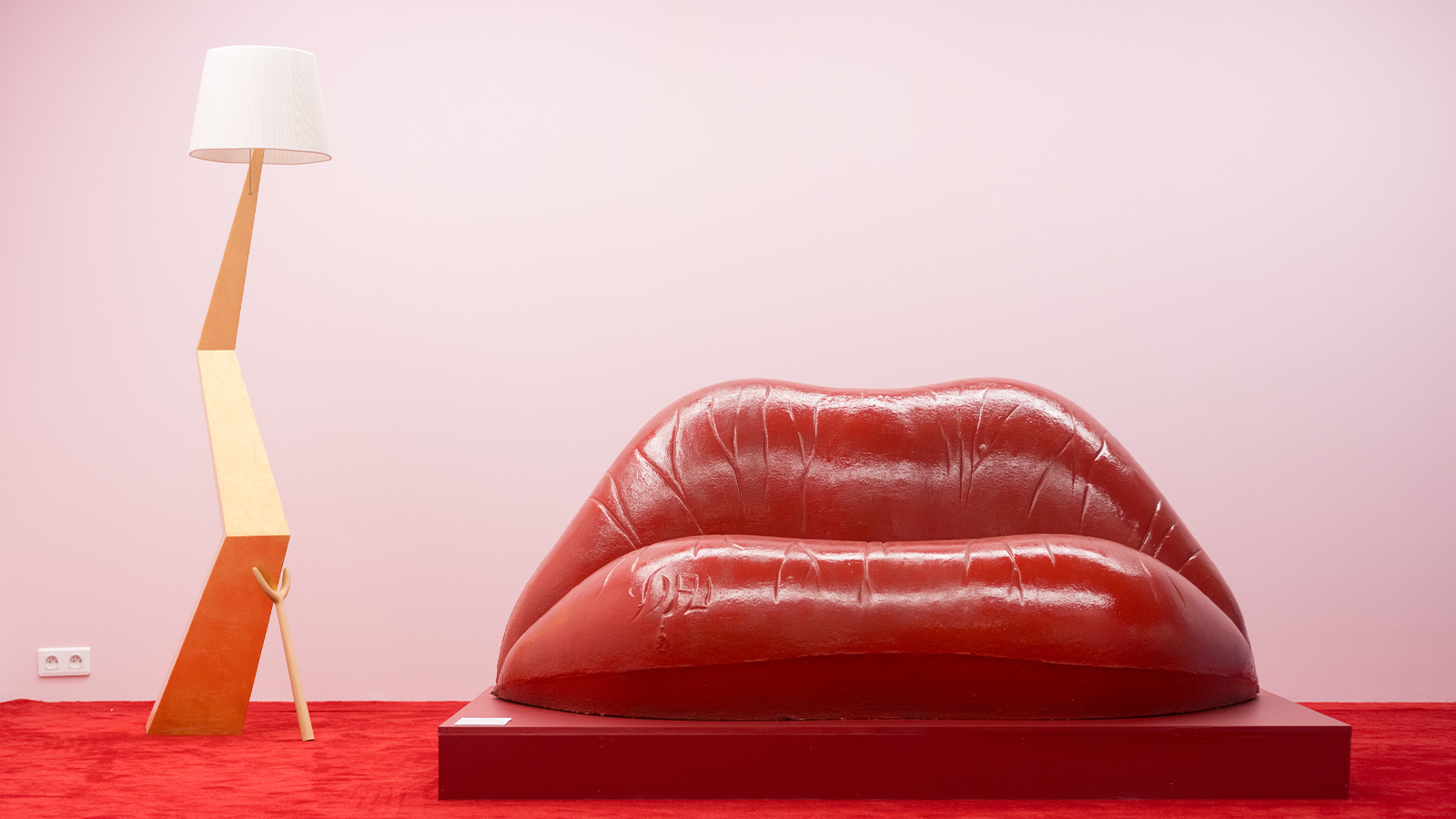
As the itinerant decadence of another European summer wanes and the French reluctantly return to work for the optimistic annual reset they call la rentrée, Paris Design Week 2024 (5 – 14 September) unfolded in the city of light amidst the final days of the 2024 Olympic (and Paralympic) fervour. With the megalith trade show Maison & Objet returning to its biannual outpost at Parc de la Villepinte outside the city, a smattering of local launches and satellite events in town framed a soft landing into the new working year for the Paris design community.
Both industry-facing appointments and public exhibitions offered a glimpse into the eclectic possibilities of new craft, historical re-editions and graphic opulence that form a part of today’s design landscape. But with the European spring so saturated with design events from March to July, one couldn’t help feel an absence of heavyweight investment and spectacle-driven events this week, with some design editors choosing to relocate projects already presented during Salone del Mobile 2024 in April, and others activating their showrooms and permanent spaces with smaller collectible design showcases and collaborations.
Paris Design Week 2024
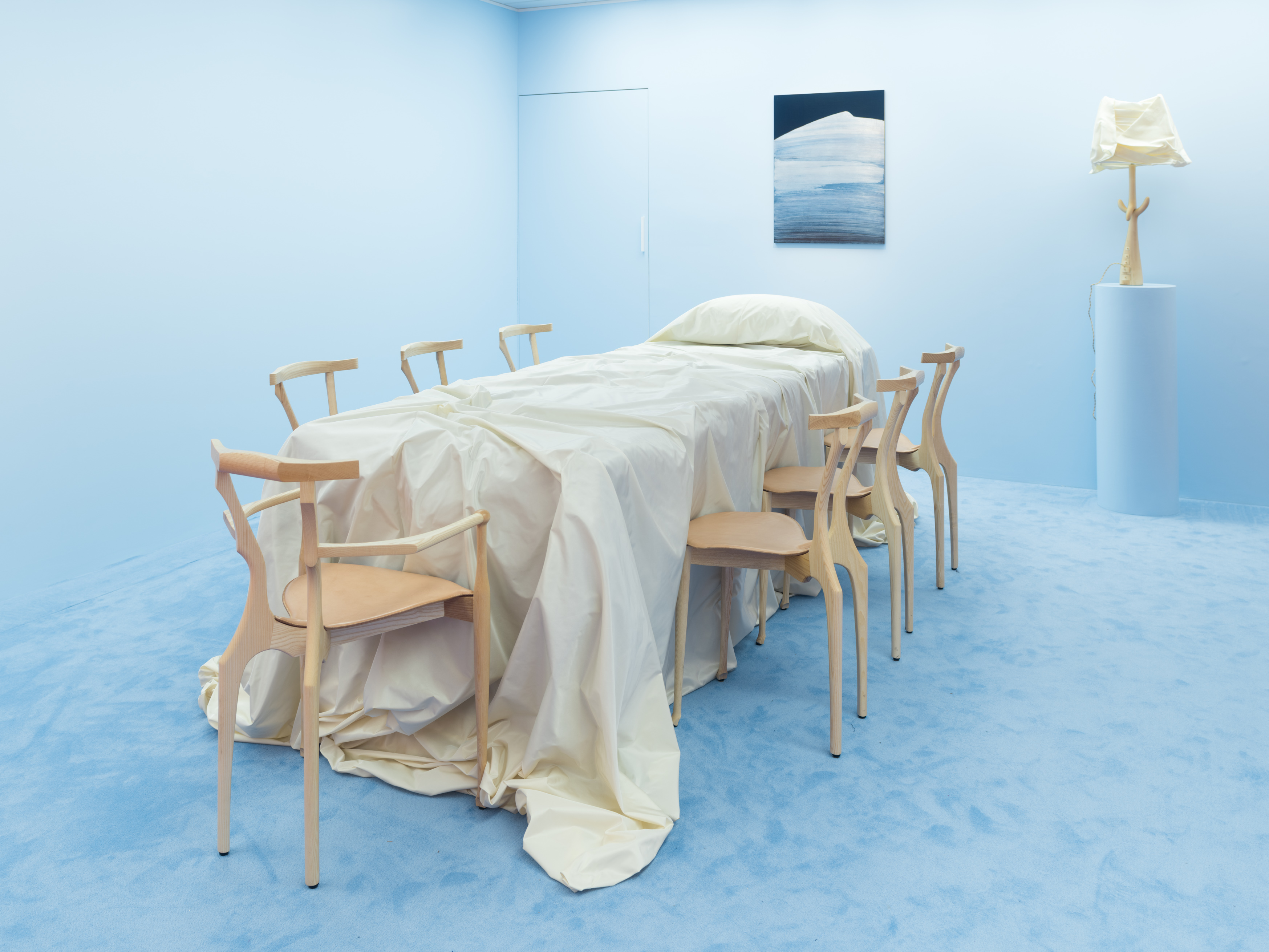
To wit, we saw Tacchini’s Faye Toogood concept ‘Rude Arts Club’ compacted into Silvera’s Left Bank showroom, CC-Tapis’ ‘Criss Cross’ collection by India Mahdavi re-hung in the designer’s own Project Room on the rue de Bellechasse, and Pierre Chapo’s graphic recycled fur-niture concept on show at furrier Yves Salomon’s 1st arrondissement HQ. Originally unveiled in Le Corbusier’s Cité Radieuse social housing in Marseille, an impressive set of multi-coloured glass salon furniture by French duo Marie + Alexandre migrated north to Galerie Signé, a block away from French ceramicist Elsa Foulon’s new collection of milky glazed column lamps finished with Schumacher’s sky-tinted ombré textiles in the brand’s Rue Jacob office.
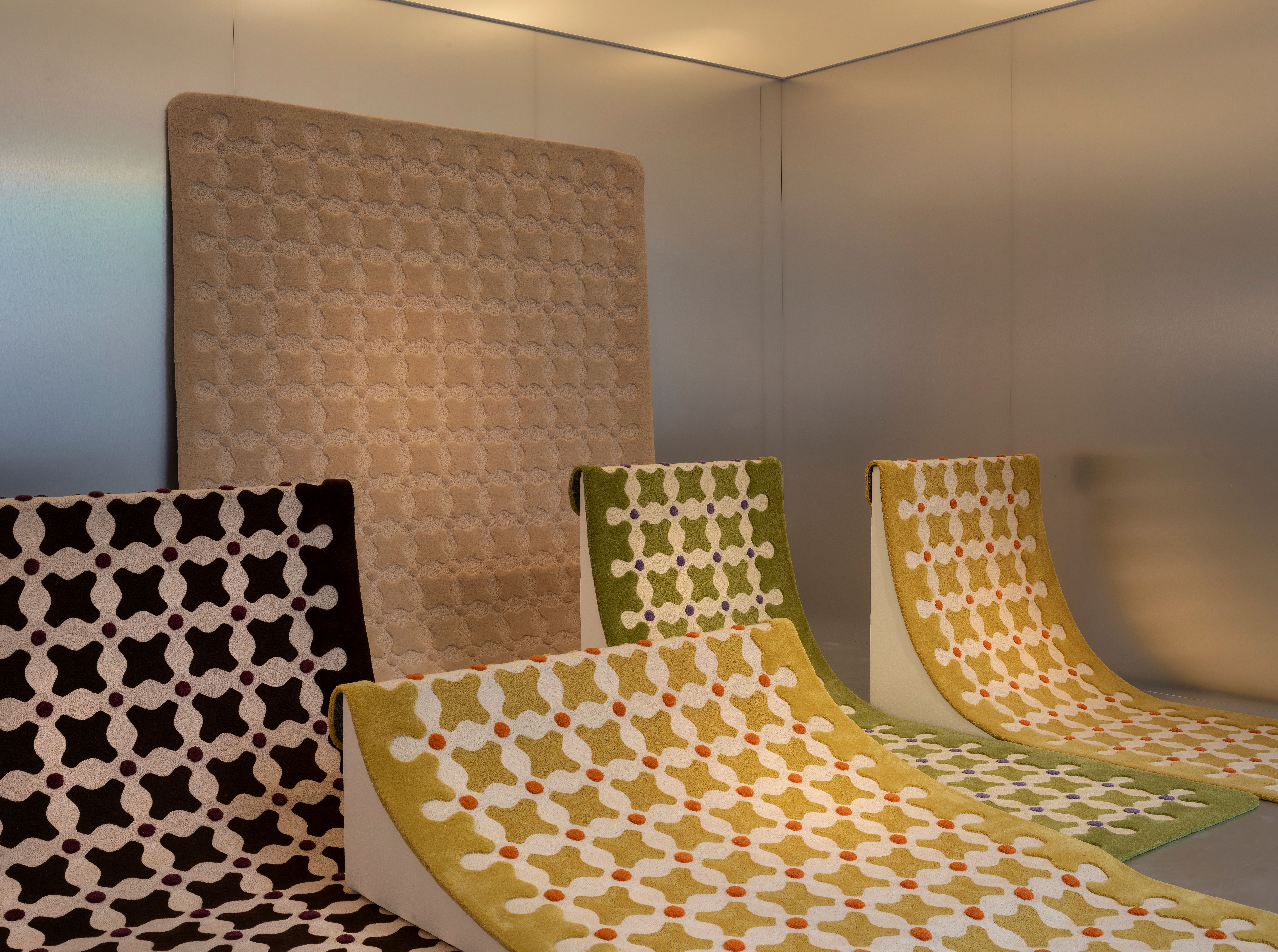
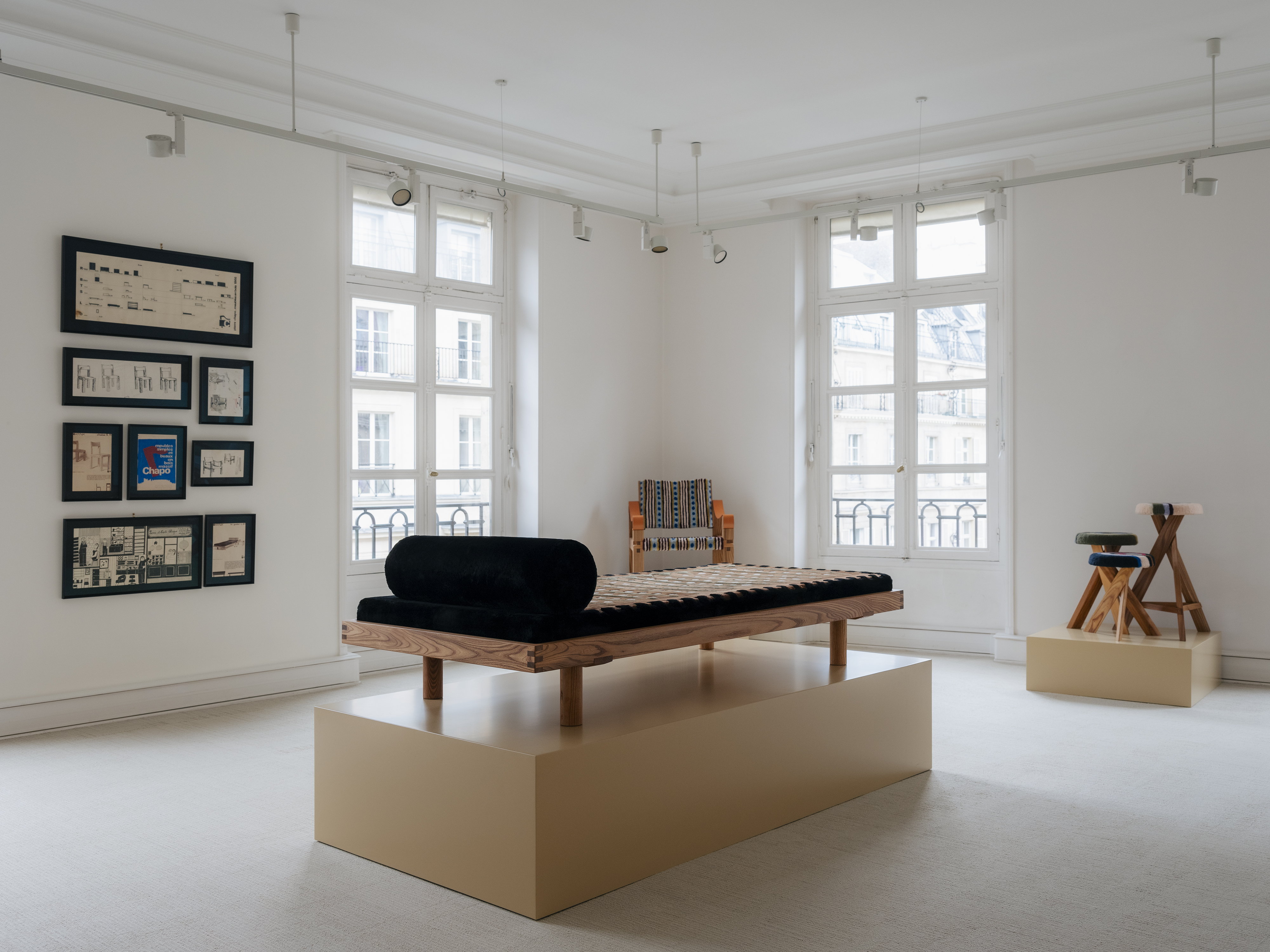
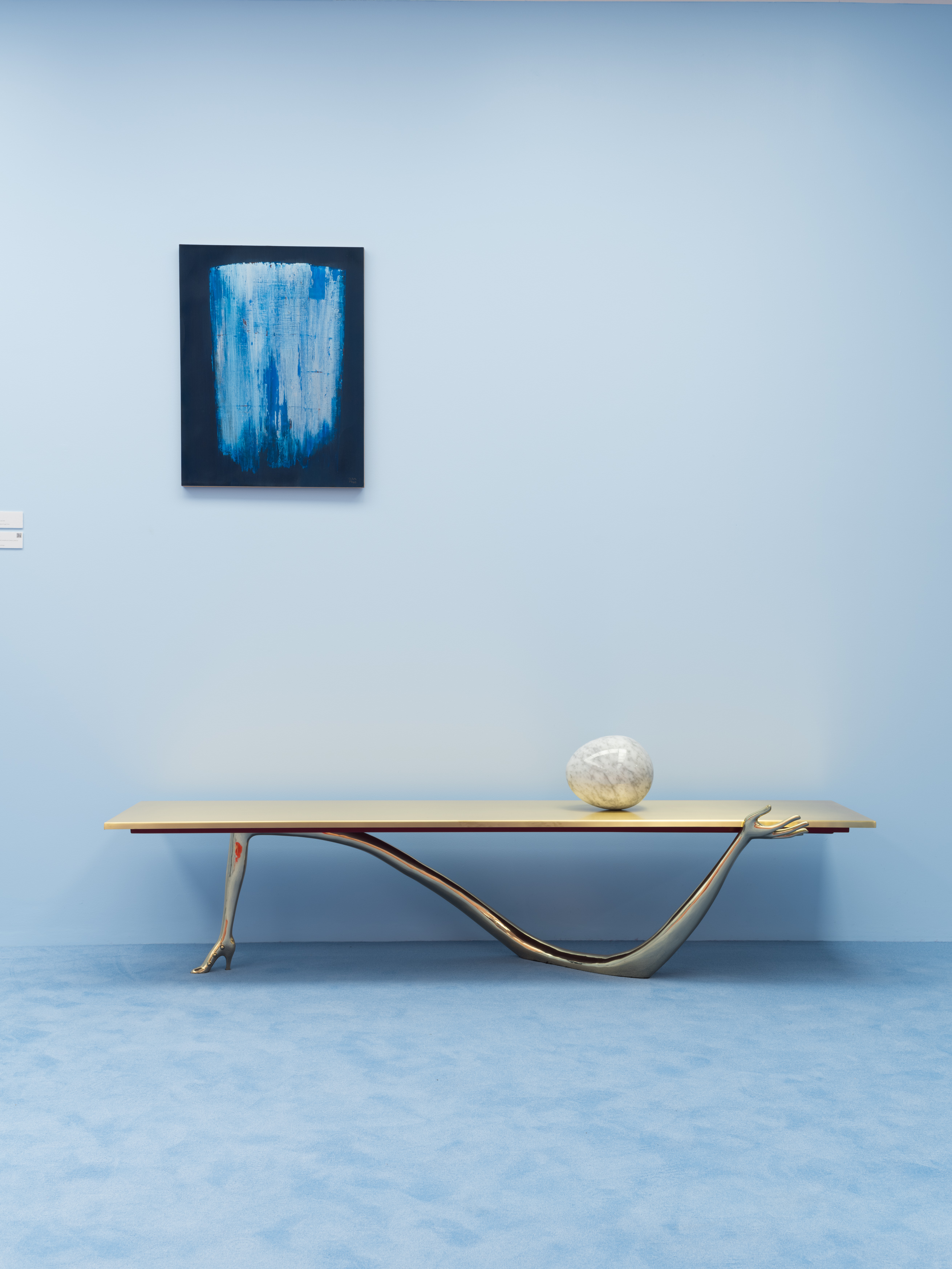
Starting the week on the back of the Centre Pompidou’s newly opened ‘Surréalisme’ centenary exhibition before the museum’s impending five-year renovation, BD Barcelona and NES Gallery joined forces at Galerie Poggi with a hybrid show of Surrealist-inspired design pieces from the likes of Salvador Dalí, Philippe Starck and Antonio Gaudi. In conversation with sculptures, paintings and photography from the gallery’s archives, a colour-blocked set design by the independent architect and curator Joan Madera saw Dali’s lascivious ‘Saliva Sofa’ set on a matching lipstick red carpet, and Oscar Tusquets’ ‘Gaulinetta’ dining chairs positioned around a ghostly table-scape draped with floaty shantung silk surrounded by provocative photo portraits by Georg Tony Stoll and Antony Goicolea’s glowing figures
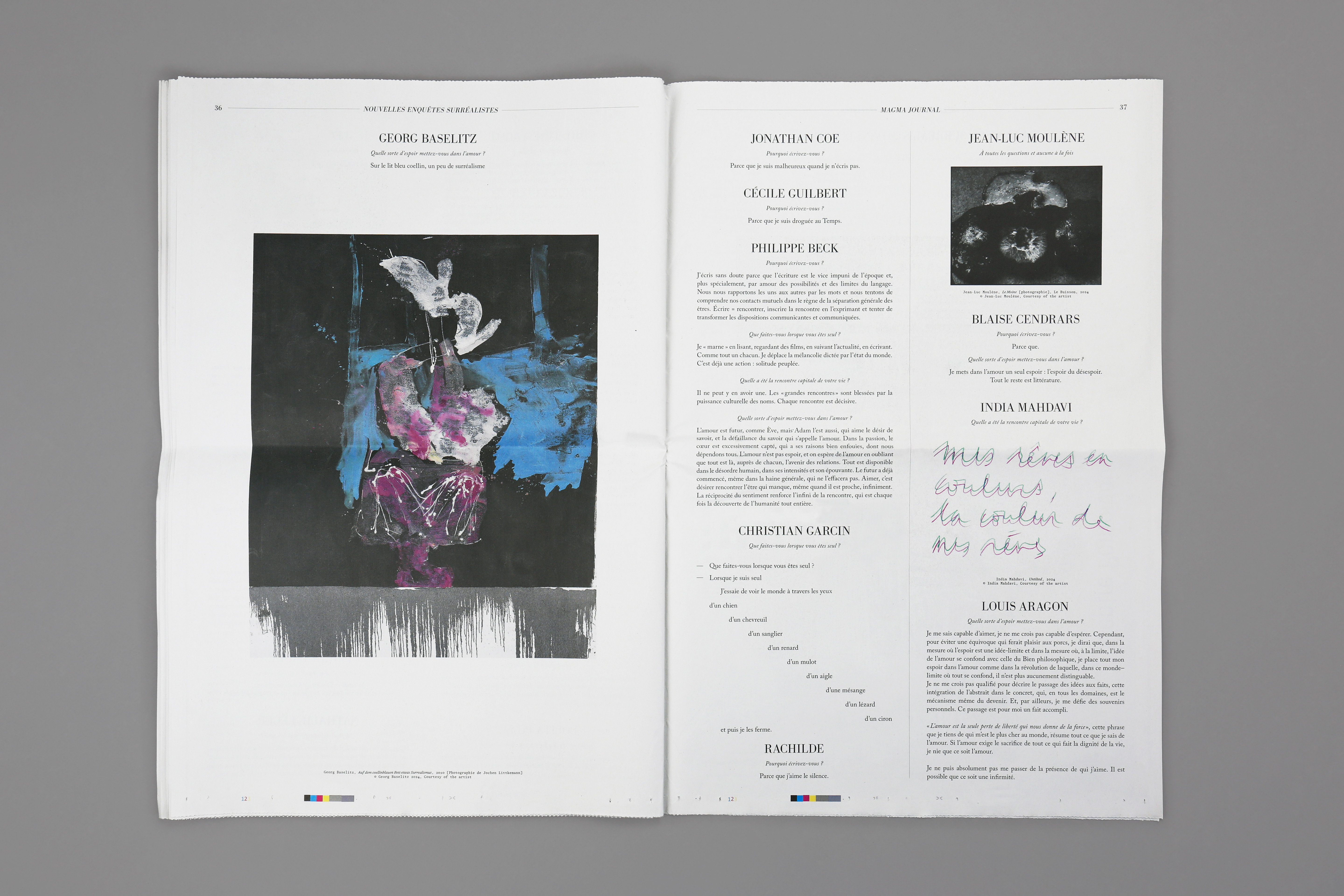
Distributed for €4 in newspaper kiosks around the city and fêted at the Pompidou’s own bookstore on Wednesday night, a newspaper by the new annual art review Magma Journal (in collaboration with the museum) is pushing a Surrealist agenda between art and design too. The paper compiles text, illustration, photographic and painting contributions from 150 artists and designers (dead or alive), from the likes of Patti Smith, Georg Baselitz, Erwin Wurm and Orhan Pamuk – as well as names from the firmament of the original Surrealist movement – who all responded to one of four questions chosen from original enquiries the group undertook between 1919 and 1957. It’s a playful format: a curated stream of highbrow thought packaged without pretence.
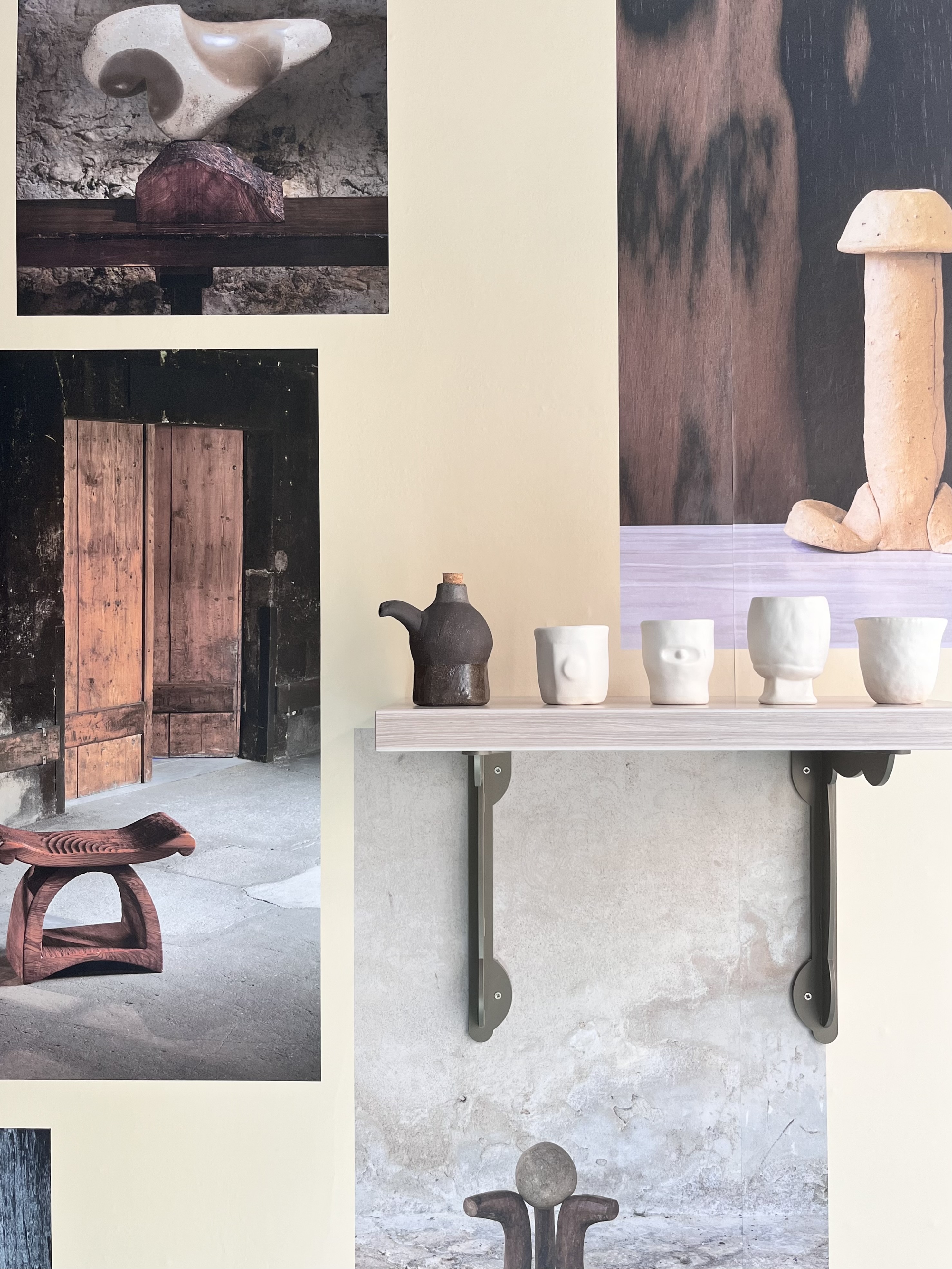
Returning to the contoured white volumes of the new private ‘art apartment’ Maison Rocher in the Marais for a second activation this year, Copenhagen puritans Frama joined forces with the Moroccan-based American firm Beni Rugs for an intimate dinner to reveal their collection of fringed rugs in shades of ‘salt’, ‘sand’ and ‘soil’. Presented in low, meditative scenes of communion or hung in abstract drapes to highlight their smooth hand, the deceptively simple designs reveal infinite natural imperfections present in the undyed wool fibres.
In a similar vein of restraint – and a welcome sense of anti-design – the French design collective We Do Not Work Alone invited the estate of the late Californian sculptor JB Blunk (1926-2022) as the latest addition to their ‘objects made by artists’ programme, that has previously included playful domestic products by John Armleder, Marc Camille Chaimowicz and Annette Messager. Coinciding with a retrospective exhibition at the Fondation Martell in Cognac, the cosy satellite show frames merch and a re-edited sauce pitcher from 1975 against wallpapered photography of Blunk’s more ambitious sculptural works, honouring his impressive yet little-known legacy in the American arts and crafts movement.
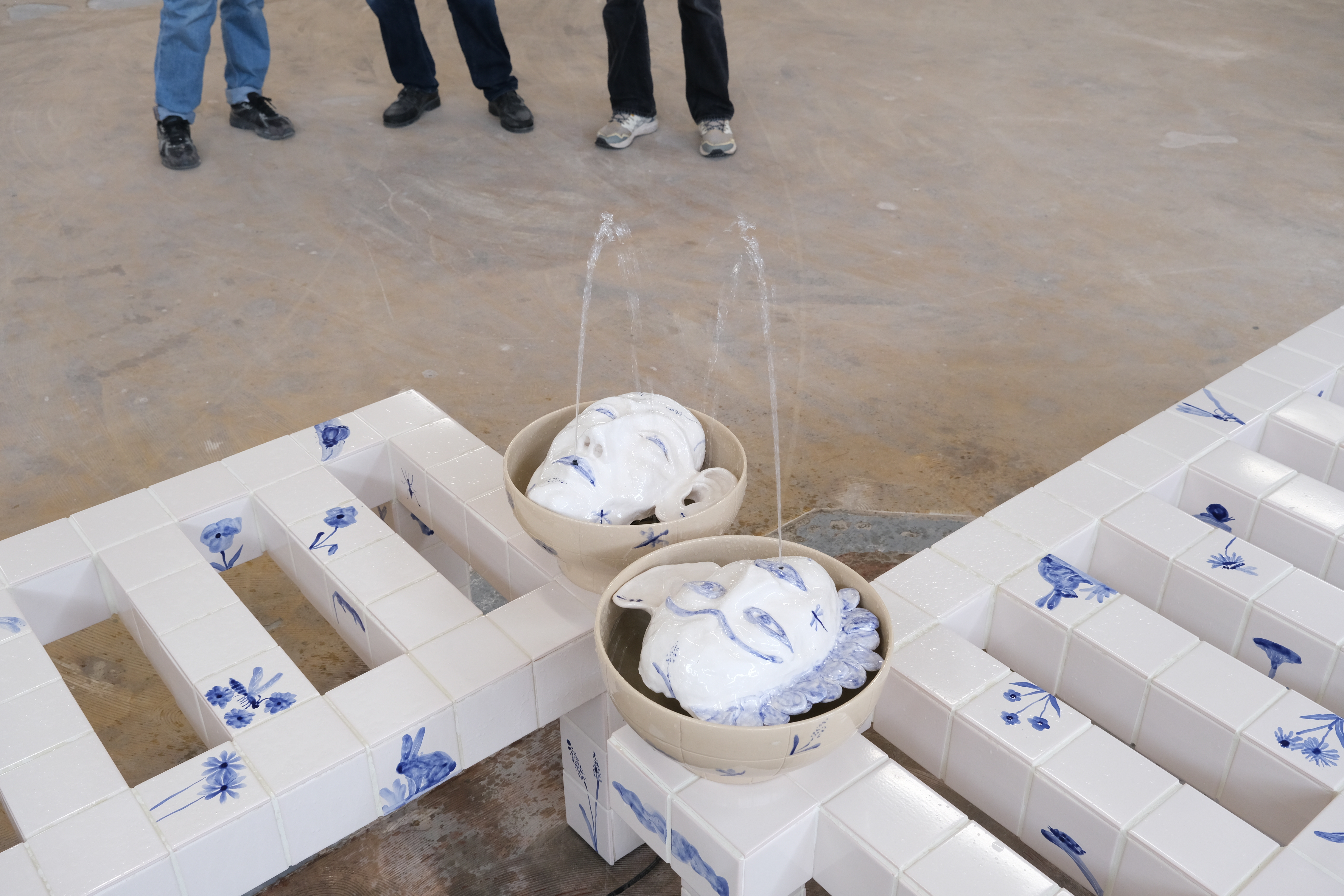
A little further afield, the collision of art and design continued at POUSH, the art incubator in Aubervilliers, where the cupola of the 20,000 sq m residency set the scene for ‘Stool for Thoughts’, a group design exhibition curated by POUSH director Yvannoé Kruger. Uniting disparate practices that consider both the unconventional function or even the absent function of a piece of furniture, POUSH residents and invited artists presented a nebulous group show under the bright, airy dome.
Here, the boundaries between art and design were blurrier than ever, with Bureau Idéal’s Delft-inspired tiled fountain-meets-conversation-bench sitting nearby a display of carved decorative brooms by Thibault Lipski standing to attention, and Robinson Ferreux’s elegant folded silk floor light resembling taco shells or perhaps moon cycles, if you squint. Organic forms abounded in carved woods, ceramic and glass, with a marked sense of the handmade infused into forms akin to 3D printing that were, in fact, not. The show’s informal curation was a chance to enjoy art and design in loose conversations around architecture and the body, inherently connected to the place the objects were conceived.
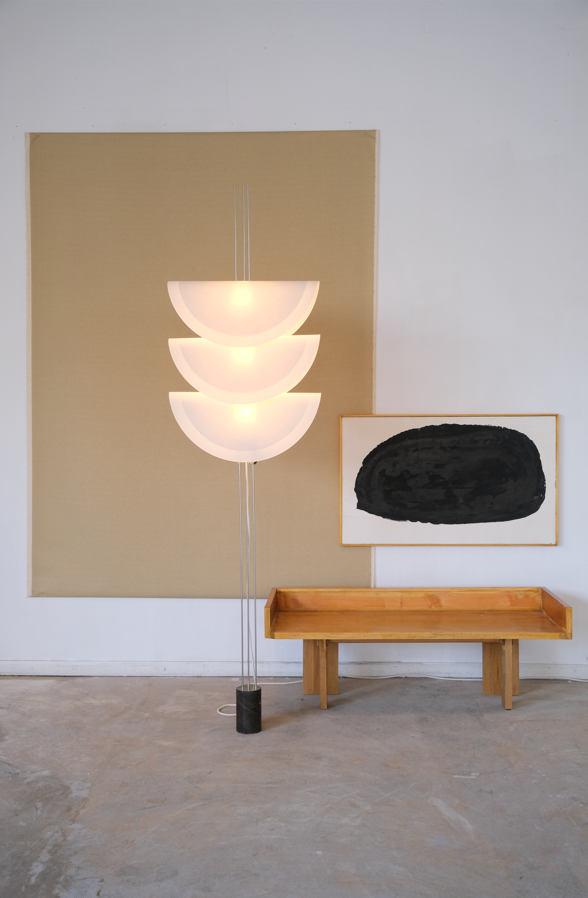
With Paris Art Week set to land barely a month after Design Week, and including Art Basel Paris’ much-anticipated move to the Grand Palais and Design Miami’s return to the Hôtel de Maisons, it will be an interesting moment to compare and contrast the attendance and impact of these competing moments in the city’s autumn calendar. The old conceit of design as art’s little brother grafted onto key art dates as a mere complement seems to be fading out of sight, yet timing and visibility is everything when considering the seemingly endless opportunities to buy, sell, exhibit and experience design in capital cities today.







